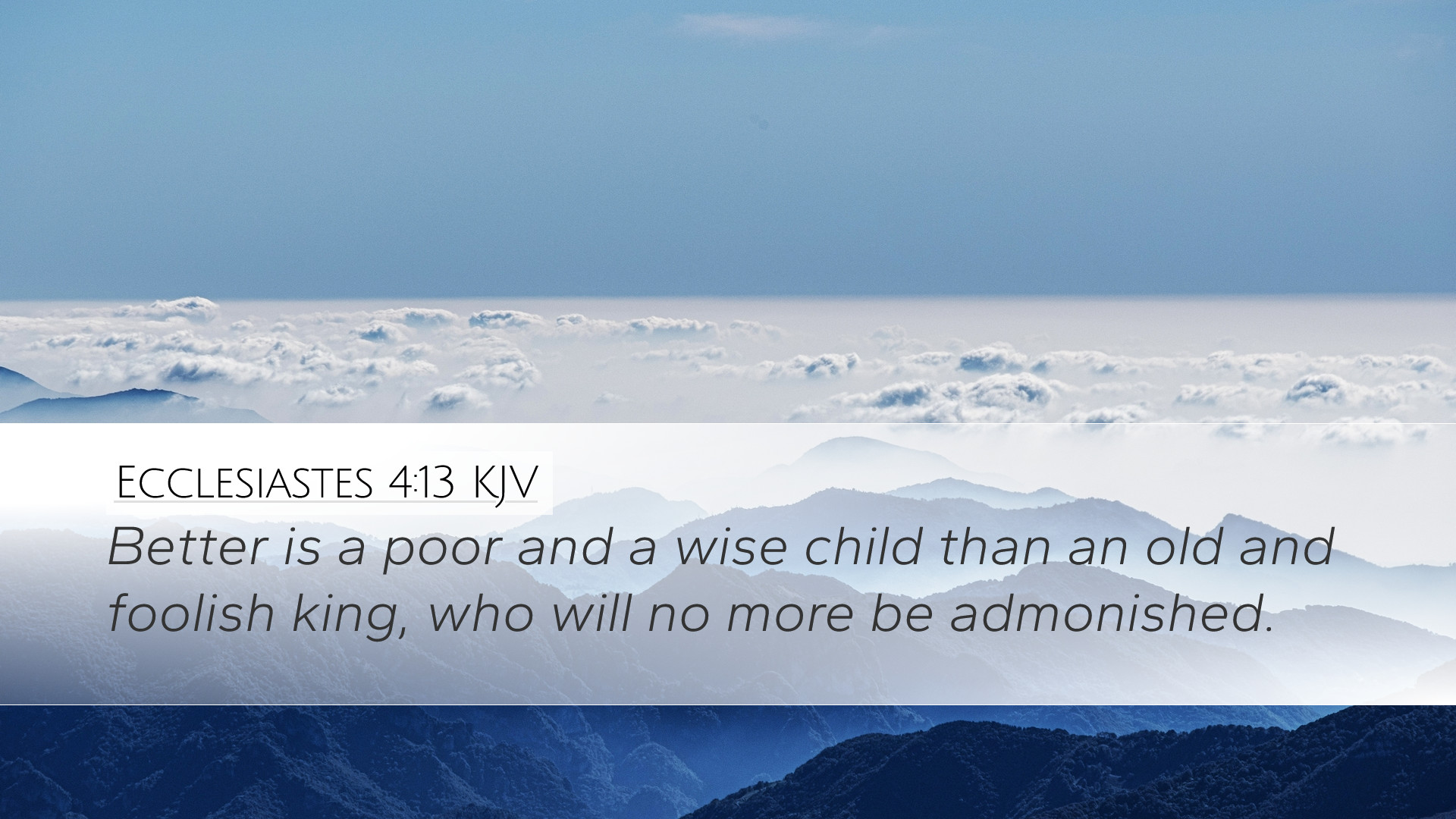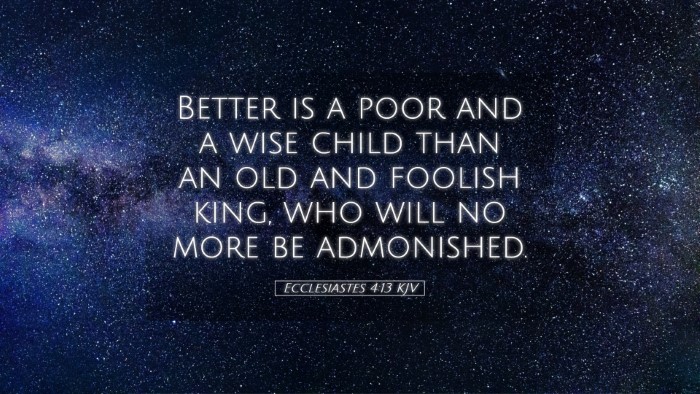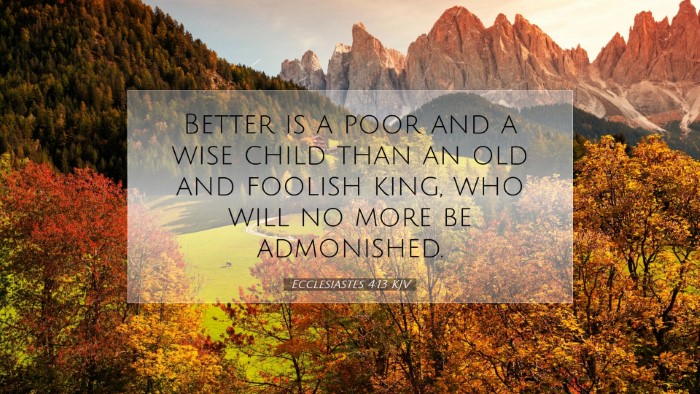Old Testament
Genesis Exodus Leviticus Numbers Deuteronomy Joshua Judges Ruth 1 Samuel 2 Samuel 1 Kings 2 Kings 1 Chronicles 2 Chronicles Ezra Nehemiah Esther Job Psalms Proverbs Ecclesiastes Song of Solomon Isaiah Jeremiah Lamentations Ezekiel Daniel Hosea Joel Amos Obadiah Jonah Micah Nahum Habakkuk Zephaniah Haggai Zechariah MalachiEcclesiastes 4:13
Ecclesiastes 4:13 KJV
Better is a poor and a wise child than an old and foolish king, who will no more be admonished.
Ecclesiastes 4:13 Bible Commentary
Ecclesiastes 4:13: "Better is a poor and a wise child than an old and foolish king, who will no more be admonished."
Contextual Overview
The book of Ecclesiastes, traditionally attributed to Solomon, grapples with the meaning of life and the best way to live. In chapter 4, the Preacher reflects on various aspects of human existence, including wealth, oppression, companionship, and wisdom. Verse 13 serves as a poignant statement contrasting wisdom and folly across different experiences of life.
Commentary Insights
In this verse, we encounter a paradox: the value of wisdom over rank and status. Biblical commentators offer profound insights.
-
Matthew Henry:
Henry emphasizes the significance of wisdom over social status. He points out that a young, wise person, despite poverty, possesses greater value than an older king who lacks insight and refuses correction. This illustrates God's preference for a humble heart that seeks wisdom over the arrogance of those in power.
-
Albert Barnes:
Barnes notes the societal implications of the contrast drawn. The verse suggests that wisdom thrives in youth when it is sought earnestly. In contrast, the king, representing established authority, often becomes rigid and unteachable. This calls into question the value placed on worldly achievements against the eternal significance of wisdom.
-
Adam Clarke:
Clarke explores the cultural context, explaining that age does not automatically confer wisdom. Declaring that foolishness can persist, regardless of position or experience, he highlights that true admonition and reform come from the willingness to listen and learn, which can sometimes be found in the most unlikely places.
Theological Themes
Several theological themes arise from Ecclesiastes 4:13:
-
Wisdom vs. Status:
The juxtaposition puts wisdom at the forefront, suggesting that divine wisdom is of greater worth than earthly authority. This aligns with the broader biblical narrative that proclaims wisdom as the principal thing (Proverbs 4:7).
-
The Impermanence of Power:
Biblical narratives continually demonstrate that earthly power is transient. Kings may rule, but their rule does not guarantee wisdom or righteousness. This truth serves as a reminder of God's ultimate sovereignty.
-
Humility and Teachability:
This verse underscores the necessity of being open to correction. It suggests that a wise heart is not confined by age. Anyone willing to heed wisdom is positioned to grow, regardless of their life stage.
Practical Applications
For pastors, scholars, and students of the Bible, numerous practical applications can be derived from Ecclesiastes 4:13:
-
Encouragement to Seek Wisdom:
Encourage congregations to pursue wisdom through study, prayer, and engagement with Scripture, affirming that wisdom can lead to a fulfilling and righteous life.
-
Valuing the Voices of the Young:
In church and community leadership, consider the insights from younger members, acknowledging that their perspectives, being grounded in wisdom, can be profoundly impactful.
-
Challenging Authority:
Promote a culture where constructive criticism is welcomed, reminding leaders and congregants alike that growth is possible only through a disposition that is open to learning.
Conclusion
Ecclesiastes 4:13 serves as a powerful reminder of the value of wisdom transcending worldly status. In a culture that often equates power with wisdom, this verse invites deeper reflection on the qualities that truly lead to a fruitful life. As we meditate on these truths, may we all strive to embody the wisdom that comes from above and encourages an attitude of humility and readiness to learn from all circumstances of life.


